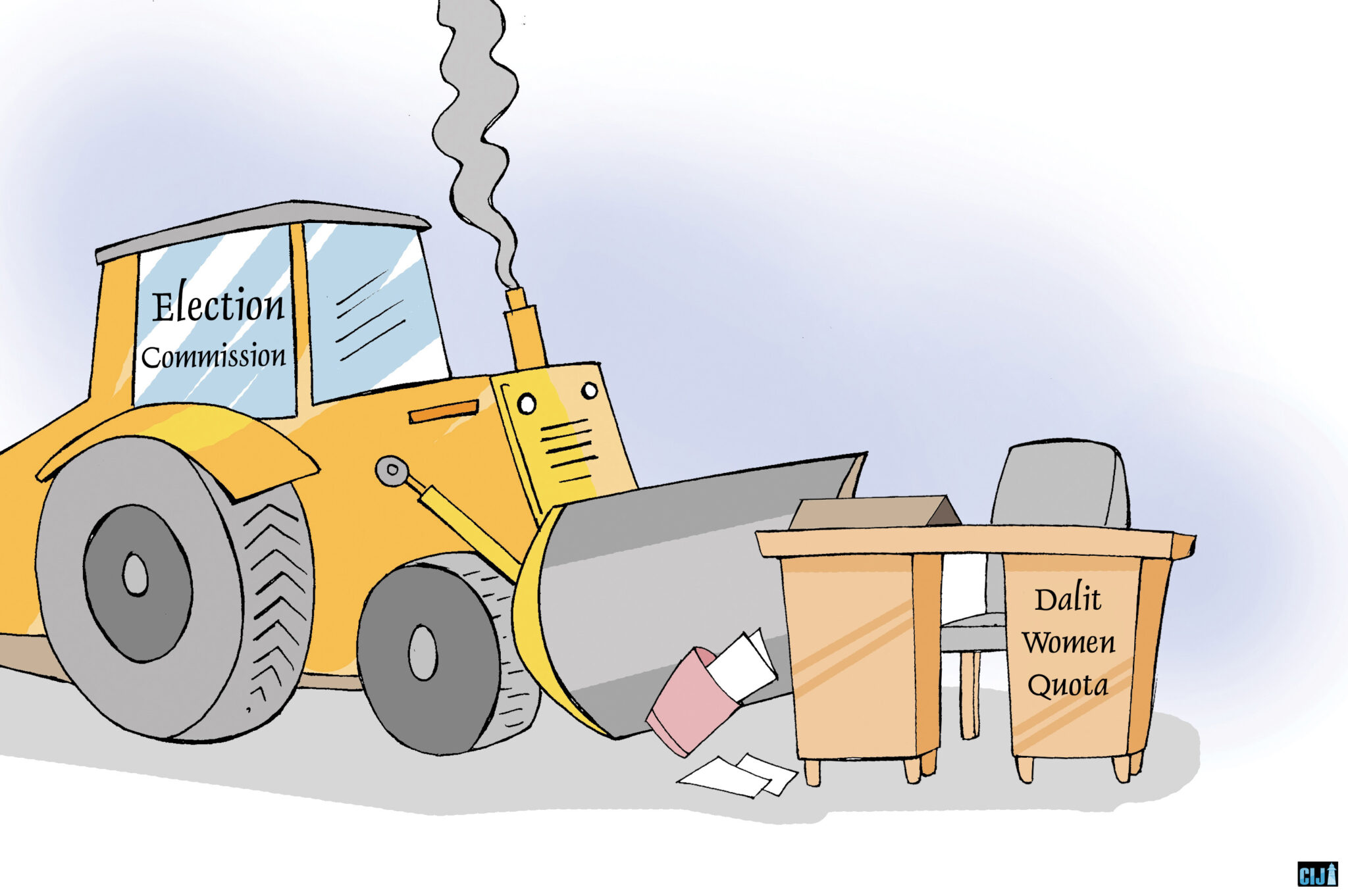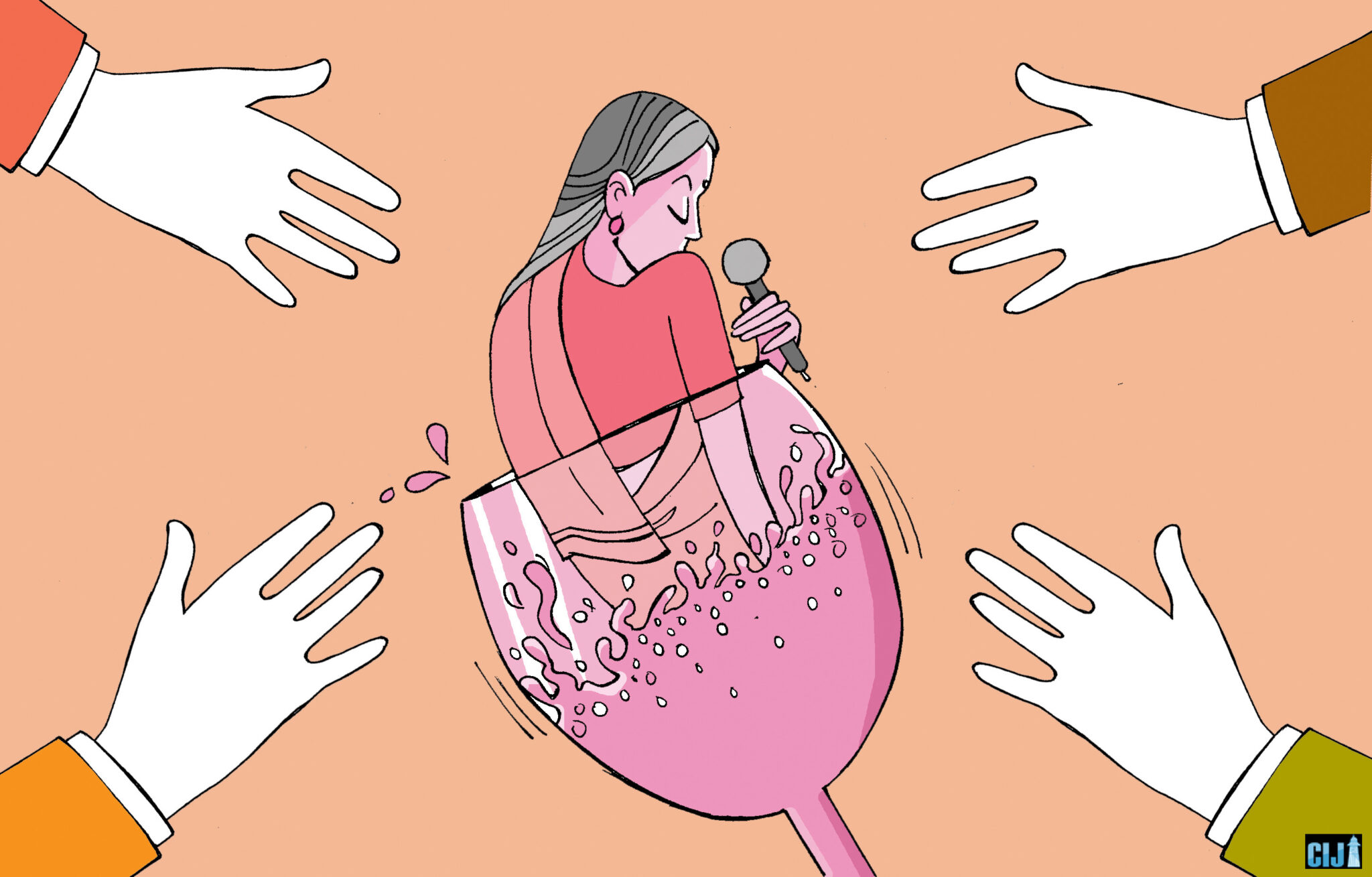Desperate Measures: Surgical Uterus Removal in Response to Escalating Sexual Violence
Durga Rana Magar |CIJ Nepal
As incidents of sexual violence against adolescent girls with intellectual disability have increased in number, parents have been forced to surgically remove uterus and thus conduct hysterectomy on the girls.
In Kaski, Arati’s family never leaves her alone due to her intellectual disability. However, one day, her mother had to attend a nearby religious ritual, leaving Arati at home. During her absence, neighbors heard Arati’s distressing screams and rushed to her aid. What they witnessed was horrifying – a man assaulting Arati. She was pushed to the ground, her pants pulled down, and in a state of shock, she clutched a broom, scattering its bristles around the room. The neighbors apprehended the assailant and handed him over to the police.
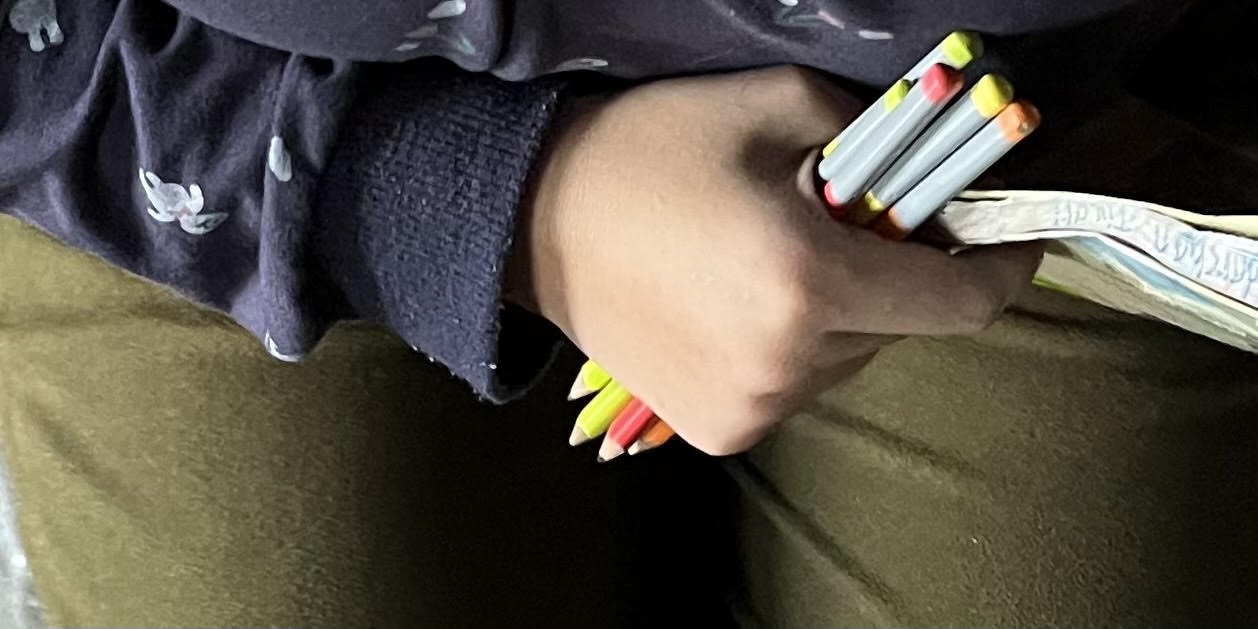
A girl with intellectual disability, carrying a pencil and a notebook. Photo credit: Durga Rana Magar
The perpetrator, a 48-year-old man employed as a house help in a neighboring residence, seized the opportunity to assault Arati while the village was engrossed in the ritual. Arati, aged 53, is non-verbal, communicating with her family through signs and unclear sounds. On that day, her screams were a powerful expression of her resistance.
In April 2022, the police submitted an investigative report to the public prosecutor’s office, with a doctor confirming an attempted rape. This enabled the attorney’s office to file a case at the Kaski District Court. However, due to insufficient evidence against the defendant, the court delivered a verdict in May 2023, classifying it as a case of sexual abuse rather than rape. Subsequently, the court released the accused, allowing him to return to the same village. Arati’s mother expressed her frustration, saying, “I don’t understand the law. I’ll protect her as long as I’m alive, but what will happen after I’m gone?”
Dr. Rajendra Adhikari from Pokhara Academy of Health Science Gandaki Hospital said, “Some parents request us to surgically remove the uterus of their intellectually disabled daughter. The reason might be their concern for the daughter’s safety.”

Anjana KC.
A survey conducted by the Centre for Investigative Journalism among parents of 20 girls with intellectual disability corroborated the doctor’s experience. All the parents expressed deep concern for the physical safety and future of their daughters. One of the mothers from Pokhara said, “With no alternative in sight, we can even resort to surgically removing the uterus (of my daughter).”
Punam Kumal from Pokhara’s Siddharthachowk was worried about her daughter Anisha since her menstrual cycle started. Before that, Punam used to leave her daughter at home while she went out to work. However, now she cannot do that. “I am constantly worried if somebody might do something wrong with my daughter,” she said.
To ensure her 25 year old daughter’s safety, Pramila Bhandari from Pokhara’s Bagmara has transformed the daughter’s outward appearance to that of a man. She said, “I have cut her hair and made her seem like a man. I am a bit relieved after seeing her with a man’s appearance. But I am still not confident to leave her with other people.” She is also troubled by people labelling her daughter as a sin from the past lives and a burden.
Maina Gurung from Pokhara’s Malepatan is worried for her 37 year old daughter’s future, who requires her constant assistance for being fed, as well as, using the toilet. She does not see anybody else protecting her daughter after her own death.
Nobody understands
In Baglung, a girl with intellectual disability was taken to the hospital after she complained of stomach ache. With medical tests, it was discovered that the girl was pregnant. As the incident reached the One-stop Crisis Management Centre (OCMC) of the hospital, the parents were completely unaware of their daughter’s pregnancy.
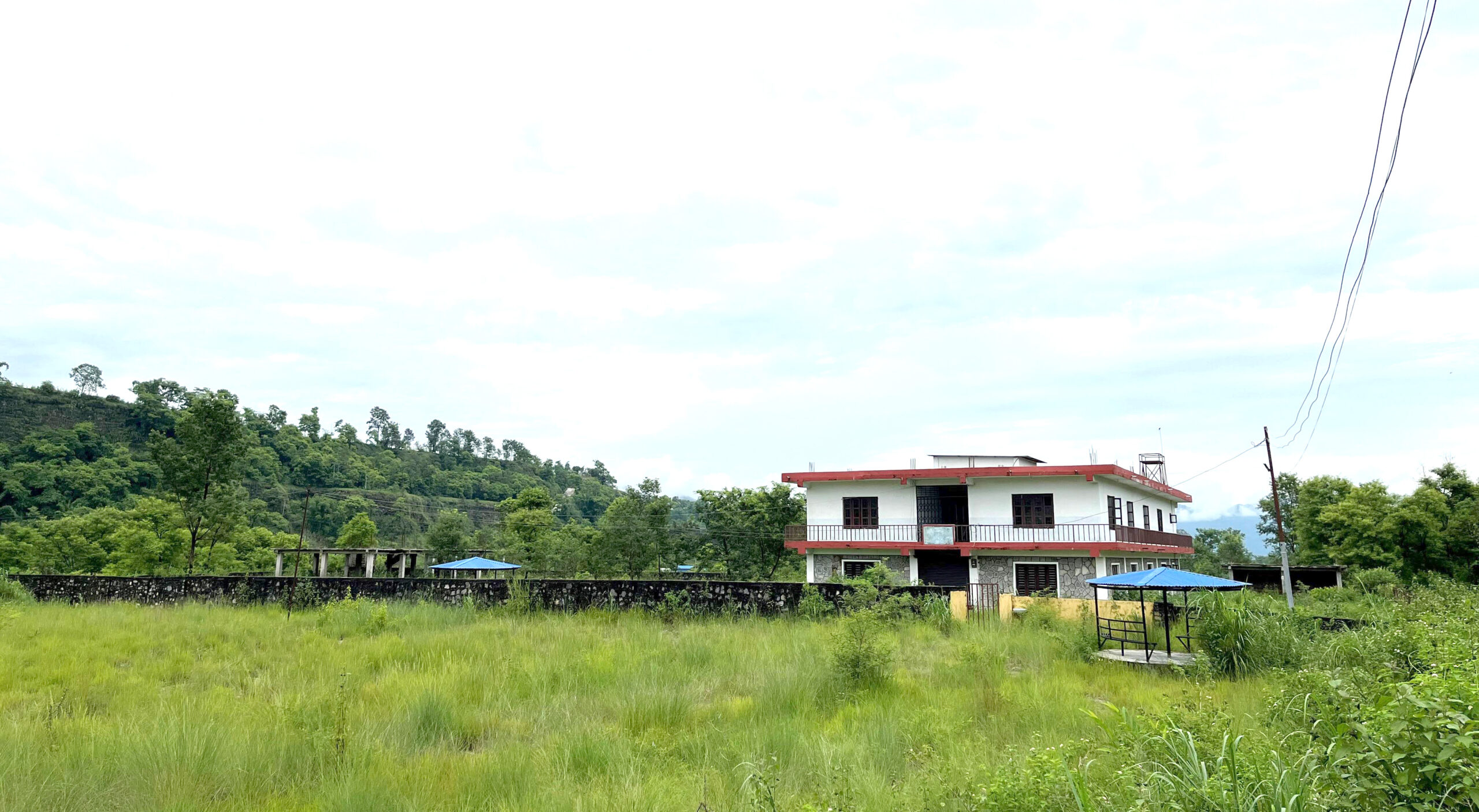
The ‘safe house’ being constructed by the Gandaki Province Government in Pokhara-33.
Persons with intellectual disability, autism, multiple disabilities and psycho-social problems have difficulties to speak and understand, more so when they become victims of sexual and physical violence. Even if some understand their victimhood, they are not able to express themselves eloquently. Therefore, there is a necessity of an expert who can understand the incidents of abuse and violence.
The federal government has established One-stop Crisis Management Centre (OCMC) in cases of gender violence in all government hospitals. In the financial year 2079/80, the OCMC at Pokhara Academy of Health Science Western Zonal Hospital recorded 191 cases of violence against women and girls. The victims of these incidents also include individuals with intellectual disability. The OCMC in-charge Rita Adhikari said, “As we cannot understand the victim, it is difficult to discover the truth of the matter.”
The 8 out of 122 incidents recorded at the OCMC at Dhaulagiri Hospital and the 7 out of 92 incidents recorded at Damauli Hospital involved rapes or rape attempts on individuals with intellectual disability or autism. Dhaulagiri Hospital’s OCMC in-charge Devi Bhattarai said that details related to such incidents are very difficult to understand because of inability of the victims to adequately explain the situation. She clarified that there is a lack of experts at the hospital who can understand the gestures and behaviours of such individuals. Damauli Hospital’s OCMC in-charge Hammaya Pun also agrees with the above sentiment as her hospital also does not employ anybody with the expertise.
According to the Office of Gandaki Province Police, the province recorded 179 rape cases in the financial year 2079/80. On the basis of the data from the past 5 years, there are many cases of rapes of children and women below the age of 20. The data also includes victims who are 90 year old women. However, the police does not have a separate data on victims with intellectual disabilities as there are very few such incidents that are recorded at police stations. In many cases, families are not aware of the incidents. While in other cases, even if known, the cases are not brought to the attention of police.
Complexity in Justice
In these incidents, a denial statement by perpetrators is enough to create complexities in the court. The Pokhara High Court’s former registrar Shreedhar Poudel said that as victims cannot describe the incidents, while the perpetrators deny their involvement, the court requires other substantial evidence. This situation asks for experts who can clearly explain at the court the physical and mental condition of the victims.
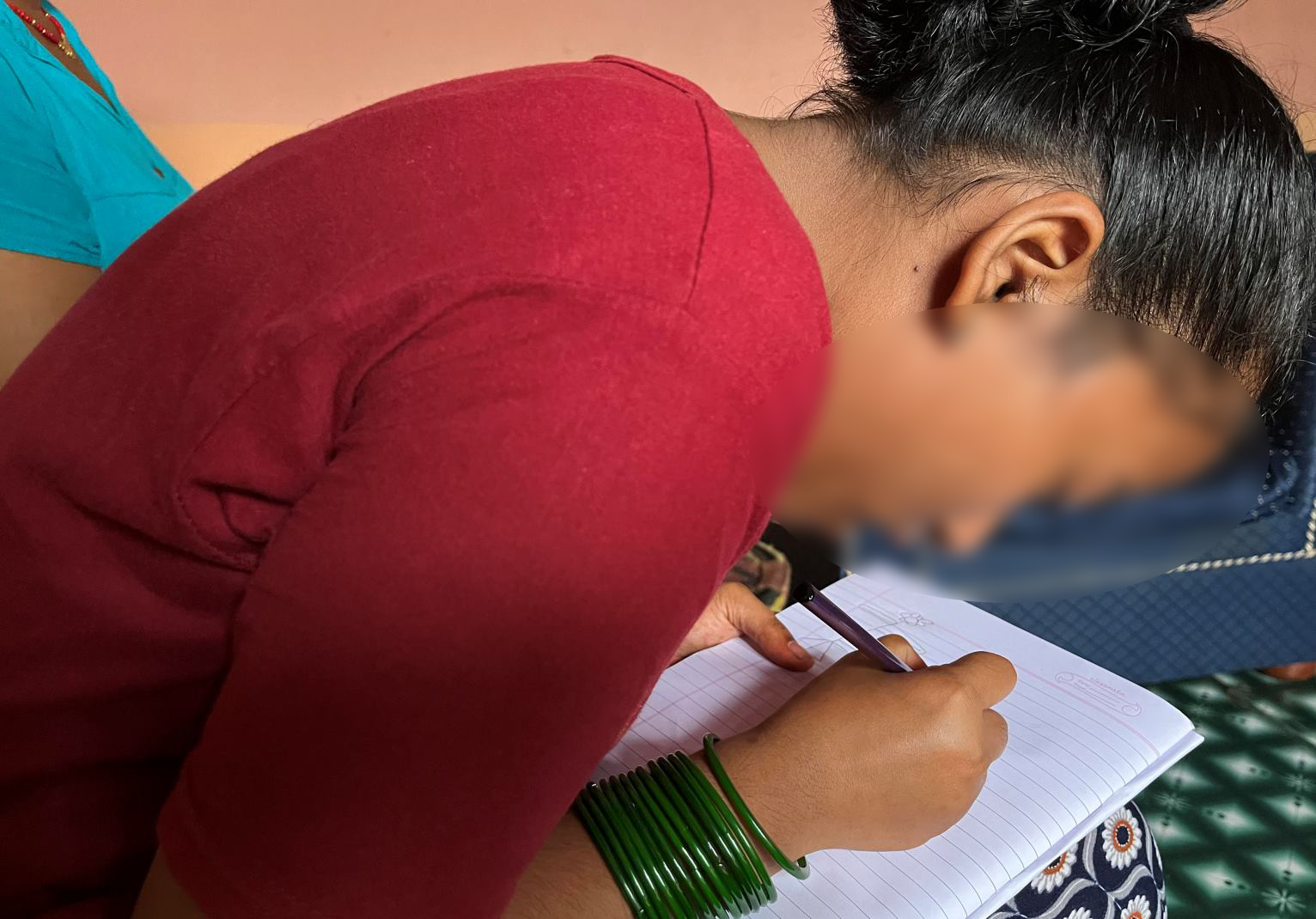
A girl with intellectual disability studying.
Binu Silwal, a women’s rights activist, said that it is the responsibility of the state to ensure the safety of these citizens, therefore, the government needs to introduce programmes that specifically protect girls with disabilities. Currently, the only assistance that the government offers to individuals with intellectual disability is the monthly allowance. The Government of Nepal started distributing the allowance since 2051 BS. However, parents claim that it is not enough. Sapana Gurung from Kaski’s Lekhnath said that the allowance is not sufficient to even buy diapers for her daughter.
The government has identified four categories of individuals with disability:
- a) Completely disabled are the ones who receive Rs 4,000 per month. They are provided with a red card as an identifier.
- b) Severely disabled receive Rs 2,100 per month. They are provided with a yellow card as an identifier.
- c) And d) categories do not receive any allowance.
According to the National Population and Housing Census 2021, Nepal has 6,47,744 persons with disability, which is 2.2 percent of the total population. Out of this figure, 2,96,443 are women with disability. The Census also identifies 12 categories of disability: physical disability, partial blindness, complete blindness, deafness, partial deafness, speech disability, mental or psycho-social disability, intellectual disability, hereditary bleeding disorder, autism and multiple disabilities. There are 11,358 individuals with intellectual disability, which is 1.8 percent of the total population with disability. While there are 5,869 men with intellectual disability, 2,628 women in Nepal suffer from the disability. Out of 57,486 individuals with multiple disabilities, 26,624 are women. Likewise, of 28,045 individuals with psycho-social disability, 13,072 are women.
‘Safe House’ of Province is unsafe
It has been 6 years since the Gandaki Province Government started building a ‘safe house’ in order to rehabilitate victims of gender violence in the long run. The safe house was intended to provide safety to women with intellectual disability as well. Although the construction started in 2075/76, it has not been ready until now. It should be noted that the provincial government never misses to mention the ‘safe house’ in its annual policy and programme document. The ‘safe house’ is being constructed in Pokhara-33 on a 20 ropani land. Its basic structure was completed three years ago, however, it is slowly being covered by bushes and its walls are being dampened. The federal government and the provincial government have already invested Rs 3 crore and 30 lakhs since the financial year 2075/76. However, as the construction has not been completed, the investment is in a risk of being redundant.
For now, women victims of rape and other violence are being kept at accommodations provided by non-governmental organizations. However, the NGO houses do not have enough space for all the women victims. After their daughter Roshani Tamang was raped last year, the parents attempted to get help from various organizations. But Roshani was forced to return home as there was not enough space in the accommodations provided by NGOs. As the perpetrator was from the same neighbourhood, the parents were worried if the incident would be repeated.
The Act Relating to Rights of Persons with Disabilities, 2074 has ensured protection for persons with disabilities from any kind of physical and mental violence, gender violence, domestic violence, sexual abuse and exploitation. However, the government apparatus and political parties have not been sensitive, thus putting girls and women at risk.
The parents of adult persons with disabilities stay at home to look after their offspring and cannot go out from home to earn their living. This has added the economic burden to the parents in addition to the worry of their daughters being unsafe.

